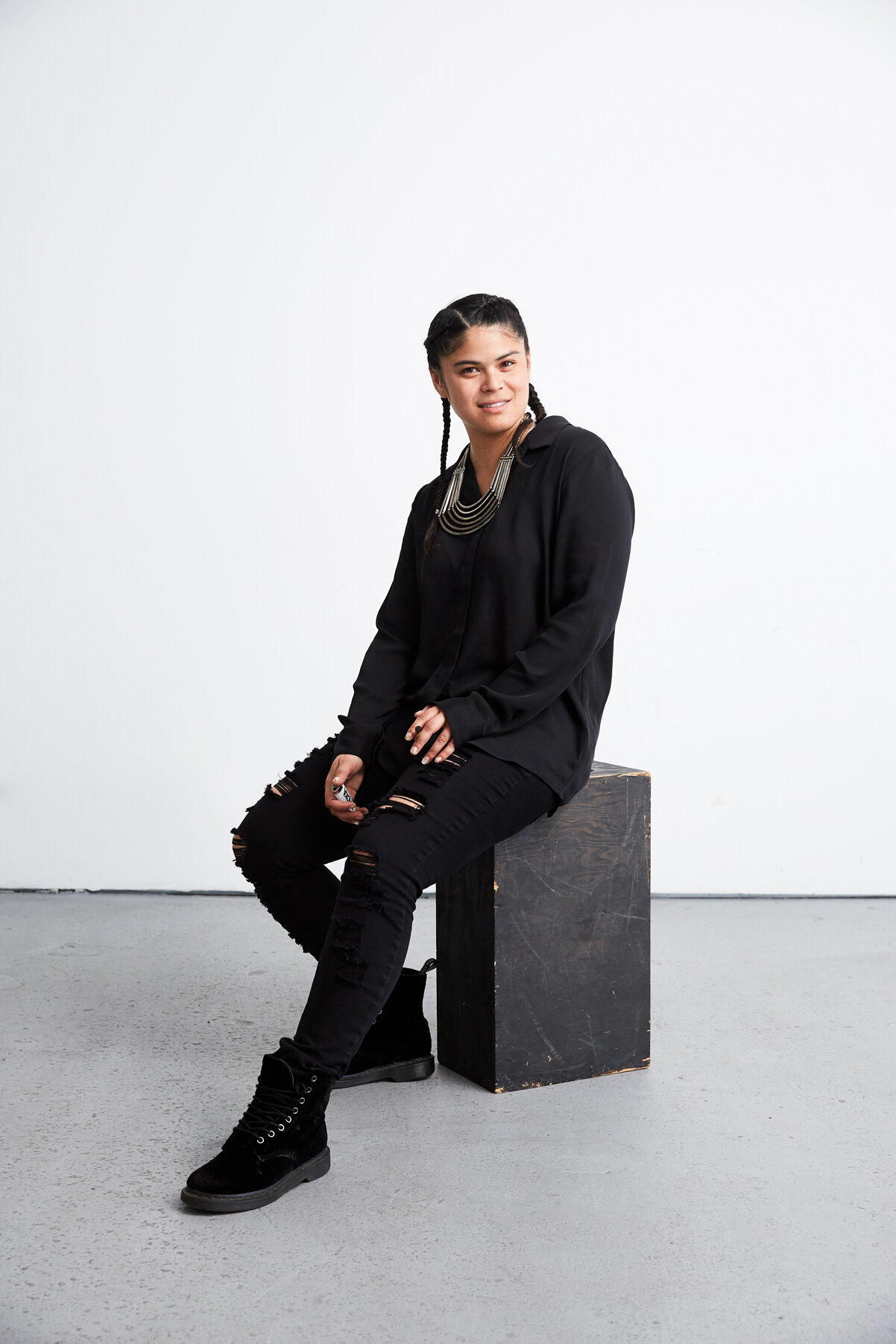Nina Parks
Photo Credit: Joe Budd
“For me there’s a level of trauma.”
My name is Nina Parks. I'm from San Francisco. Currently, I am 33-years-old, but on 4/20 I turn 34. They said I was born for this.
In regards to marijuana and law enforcement, my story starts when I worked as a Case Manager at the Bernal Heights Neighborhood Center. I was helping to facilitate programming at the Excelsior Community Center, also known as the Greater Mission Consortium. It used to be called The G, but all the gentrification of this space really turned it into a whole different world.
I saw how police officers chose to interact with our youth while they were smoking weed in the neighborhood, how they would enforce. They would run up into the teen center, pull the kids out, go through their pockets, put them into zip ties. These kids are being trained to feel like a criminal.
For the law enforcement, there's no community communication, and that's a huge problem. There's a disconnect. You feel like there it’s us and them.
It got to a place of just feeling really oppressed by this authoritative, paramilitary presence. Considering the conditions that a lot of us who are Brown, Black, those who come from families with immigrant parents, live in, we have other social barriers that don't let us have these fluffy lives that you see on television. We're constantly chasing a dream that doesn't really exist within the framework of our resources, you know? So, to be enforced upon, and to be violently enforced upon, really puts you in a fucked up mind state.
My brother―you'll hear his story, also―but my brother really was the one most heavily impacted by the war on drugs. As a young man trying to become someone that could provide and be able to attain a level of economic freedom, he chose to make some money in a way that he thought that that was him attaining the level of financial freedom that he needed.
And it worked for a second, and then maybe ... I don't know what happened. He could have gotten too confident, or not confident enough. Who knows?
Walking through the jail at Rikers Island, because that’s where he went, to visit my brother was a tough thing. You see subpar conditions for everybody. These are literal cages for humans. It's like a zoo. It's violent. They're stacked up on top of each other.
I think for me personally, there is a level of trauma.
It has consumed the greater thought process of our family for the past five years. To have to think about, "How do we support my brother while he's in there?" We don't have any control over who interacts with him, how he interacts. We have to trust that he’s able to maintain his own mental health, because there's nobody in there that's going to do that.
My father is passed away now. It's a story that one day, I'll be able to figure out how to tell. I'm just not there yet. For my mom, I feel like it really introverted her. She didn't want to be around her family. She didn't want to tell them. When people did find out, it was like this whole big fiasco, you know?
It really instilled in me a resolve to do something. I know that these systems are set in place to make us fail. The fact that my brother's only decision was to go sell drugs? Something is fundamentally wrong with our structure that he doesn't feel like he can earn any other money, any other way, to reach the level of economic freedom than that he wanted to.
I work on a lot of weed policy. I have an organization that I founded while my brother was in jail called Supernova Women. Because when I launched my [cannabis delivery] business, I was going to a lot of city meetings to figure out what was going on, and there was no people of color there at all. Slowly, there started to become like four women in the room that were consistent, and so we all formed an organization called Supernova Women.
We've been keeping up with cannabis policy, trying to make sure that the language is inclusive of people of color and women of color, making sure we don't get regulated out. We take a real serious look at what our resources are, and then we look at the way that they set up fees. We look at the way that they set up the requirements, and we're like, "Are these things that are realistic for us to be able to implement? Are these regulations something that doesn't put blockades on our ability to enter into this new market?"
Basically, what happened is that weed enforcement took over my entire life, and now all I do is advocate for weed and sell weed.

